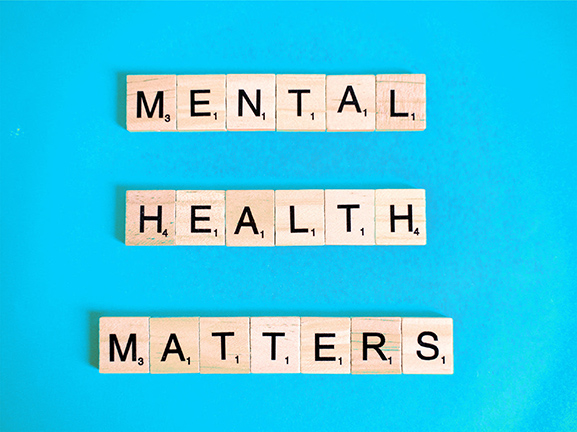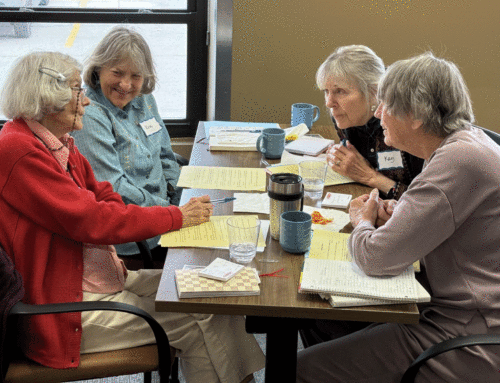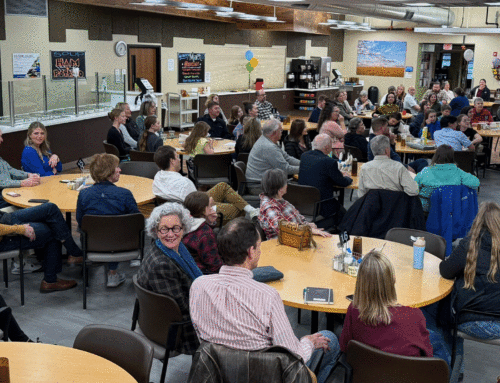Believe it or not, I can actually focus and finish a project within a specific timeline, all my procrastination and distractions notwithstanding. I’m not saying I complete the project with lots of breathing room to spare but I do adhere to deadlines.
Such was the case last week when I was feverishly editing the Study Circles on Mental Health facilitator’s guide and participant’s discussion guide simultaneously. This was in addition to what seemed like 23,467 other tasks that needed to be completed before September 29, our Study Circles Kickoff.
So, it’s understandable that in the throes of the preparation for the Kickoff and the Circles themselves, I didn’t really have time to realize the import of what we were preparing for.
I had written my introduction the day before, focusing on past Study Circles’ successes, and was then going to hand it over to our three guests to make the case for the importance of discussing mental health as a community. I had no idea what they’d say but I knew it would be good. Holy cats, I was right for once.
Paul Demple, CEO of Northern Wyoming Mental Health, told the audience of 60 or so that he was going to list statistics to prove the need for community solutions to mental health issues. But he decided that now was not about the numbers, now was about the belief and conviction that we, citizens of Sheridan County, could make a real and sustained change right here, without delay. He has seen the power of this community get behind an issue they want to address, and he had no doubt we could do it again about mental health. Everyone, he stressed, has been affected by mental health issues, whether themselves or someone they know and love. None of us is immune from its effects. All of us can be a part of solutions.
Then Sheriff Allen Thompson stood up and told some heartbreaking stories about homes he’d been summoned to because the callers were suffering from hallucinations. When they realized the officers didn’t see what they did, Allen described the grief and fear the callers experienced. He talked about the extensive training law enforcement receives around dealing with those having a mental health crisis, and emphasized that often, they are the first ones to be called when that crisis explodes. No one wants to lock up someone who is at risk of hurting themselves or others, but too often, there are no other safe options.
Finally, Susan Carr, Executive Director of Compass Center for Families, wrapped up with the mental health challenges her Parent Liaisons are seeing in the families they support. Families that struggle at the best of times are losing their resilience as COVID, unemployment, and other toxic stressors take their toll. And then there are the helpers, those who work for Paul, Allen, the medical community, teachers, etc. who are exhausted, overworked, and dealing with their own stress and sadness.
But her closing message was the one I want to share with you now – yes, this is overwhelming. Yes, it seems insurmountable. But we’ve proven as a community, time and again, that we can make real, measurable, needle-moving changes that will make lives better through the Study Circles process. The more people who join the Study Circles to share their knowledge and experiences, the bigger the impact we can have. If you didn’t make it to a Circle this week, that’s ok! Check sheridancvc.org for the updated schedule and find the day and time that works best for you. We even have a Monday morning Circle on Zoom.
When I was being interviewed by Floyd on Public Pulse for Study Circles, he referenced the Starfish Story and asked me to share it. It’s the perfect allegory for this subject:
As an old man walked the beach, he saw a boy picking up starfish and flinging them into the sea. He asked the boy, “Why are you doing that?” The boy answered the starfish would die if left stranded on the beach. Confused, the old man said, “But the beach goes on for miles and there are thousands of starfish. You can’t make a difference.” The boy looked at the starfish in his hand, tossed it in the ocean, and said, “Made a difference for that one.”
We can make a difference.







Leave A Comment